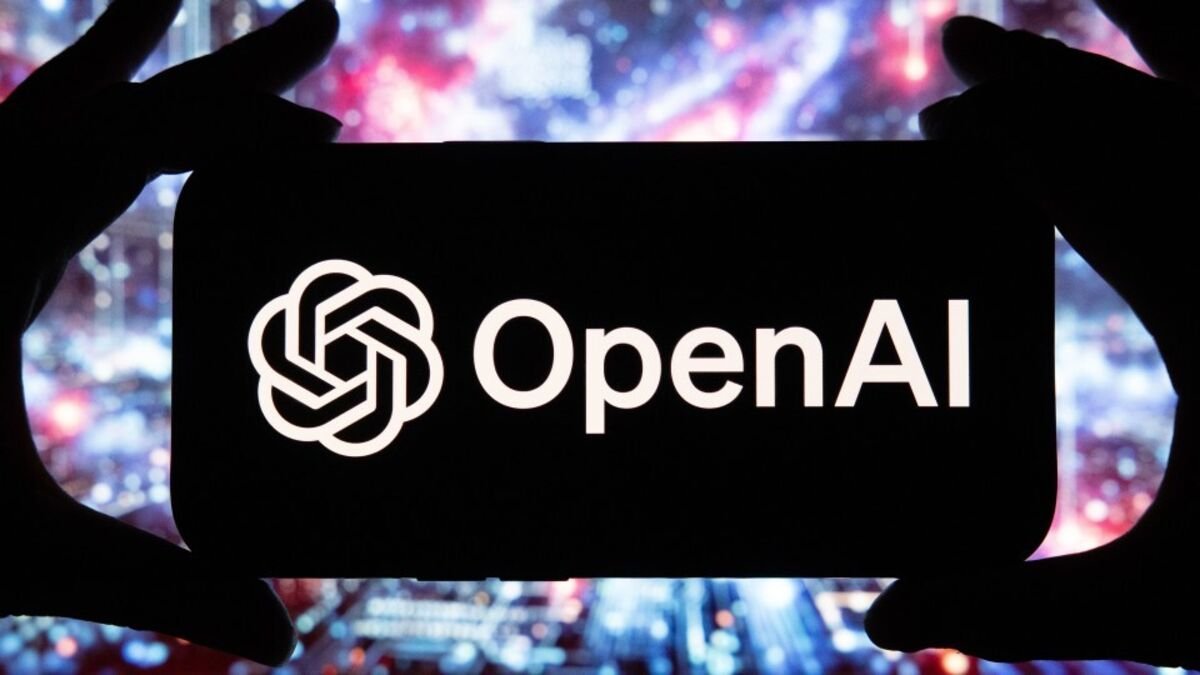Funding & Business
Chaotic Year For Shipping: Port of LA Executive Director Seroka

Postal shipments into the US are down over 80% after the end of the de minimis exception, waving tariffs on lower valued shipments from overseas. This has lead to frustration and confusion for shippers as they try to navigate this new reality. Port of Los Angeles Executive Director Gene Seroka has more on the story. (Source: Bloomberg)
Source link
Funding & Business
Why Hardware Is The Next Frontier For Investors

A few years ago, I began advising a startup developing physical infrastructure for smart cities, with an AI layer on top. I vividly recall conversations with investors who told me, “We don’t touch anything hardware related.” They said it was too slow, too capital-intensive, too risky.
Fast-forward to today, that same company has rolled out its solution across dozens of U.S. cities and now employs hundreds of people. The very hardware once deemed “too heavy” has become the immovable foundation of its market leadership.
And yet this isn’t an isolated story. Some of the most valuable companies in the world today such as Nvidia and Tesla, are fundamentally hardware-driven. Their sky-high valuations stem not just from software, but from controlling the infrastructure that enables others to build.
In the age of AI, when software can be built (and copied) at lightning speed, hardware companies offer something far more durable: presence, permanence and defensibility. Here’s why I believe it’s time for venture capitalists — and entrepreneurs — to rethink their stance on hardware.
Hardware Is the new moat
Software is increasingly commoditized. No-code, AI coding assistants and open-source frameworks have narrowed the gap between vision and execution.
In contrast, physical hardware is much harder to replicate or replace once installed. When your device is literally bolted into a city’s infrastructure, the switching cost is not just technological, it’s political, logistical and financial. That’s a moat software alone rarely provides.
Software is still relevant, but it builds on hardware
The misconception is that hardware companies are “just hardware.” In reality, the best ones are platforms. Once deployed, they can continuously upgrade their offering via software, new features, analytics, integrations and even AI layers.
That base unit of hardware becomes your permanent sales rep on the ground, enabling upsells and renewals without reselling the core product.
Bias against hardware is an outdated vestige
Many investors avoid hardware because of legacy scars: high burn, manufacturing delays, complex supply chains. But those assumptions don’t always hold today. Advances in prototyping, global contract manufacturing and recurring-revenue models have reshaped the economics. When properly structured, a hardware business can achieve healthy margins, strong retention and scalable growth.
I urge founders and VCs alike not to dismiss hardware out of habit, because the next generation of enduring tech giants may be building their moat from silicon, steel and infrastructure.
Itay Sagie is a strategic adviser to tech companies and investors, specializing in strategy, growth and M&A, a guest contributor to Crunchbase News, and a seasoned lecturer. Learn more about his advisory services, lectures and courses at SagieCapital.com. Connect with him on LinkedIn for further insights and discussions.
Related Crunchbase query:
Illustration: Dom Guzman
Stay up to date with recent funding rounds, acquisitions, and more with the
Crunchbase Daily.
Funding & Business
The Big 5 Still Aren’t Buying Many Startups

If the five most-valuable U.S. technology companies want to buy startups, they can certainly afford to do so.
Today, the Big Five — Nvidia, Apple, Microsoft, Alphabet and Amazon — have a combined market capitalization of more than $16 trillion. They’ve also got close to $400 billion in cash on the books between them.
Even with that massive spending power, however, the largest tech companies have not bought many startups this year. Per Crunchbase data, they’ve disclosed just 10 deals to purchase private seed or venture-funded companies.
This doesn’t reflect a change in M&A appetite. Rather, It’s a continuation of a trend toward fewer acquisitions that’s persisted for a few years, as charted below.
Wiz is the one really big deal amid several smaller ones
Before we push the slow M&A narrative any further, however, it would be remiss not to mention that this year’s tally does include the largest planned startup acquisition of all time. That would be Google’s agreement, announced in March, to buy cloud security provider Wiz for $32 billion in cash.
It’s not a done deal, as the transaction still faces scrutiny from antitrust regulators. It may help that Google is planning to buy a cybersecurity company, and not, say, a giant acquisition of a search engine or advertising platform. But still, the sheer dollar size means some pushback is likely.
Meanwhile, among the rest of this year’s disclosed Big Five startup acquisitions, listed below, none comes with a reported price.
Still, these could be big deals, and there could be more
Some deals without disclosed prices still do involve companies that previously raised quite a bit of funding and likely sold for good-sized sums.
For instance, Gretel, a synthetic data platform for AI, raised about $68 million in seed and early-stage funding before selling to Nvidia in March. And Axio, a Bangalore-based fintech startup, raised more than $200 million in debt and equity before selling to Amazon early this year.
In other cases, the Big Five snapped up companies still in seed stage. This spring, for instance, Google snatched up design startup Galileo AI, which had raised a few million in seed funding. And Amazon snagged Bee, the seed-backed developer of an AI-enabled wearable.
It’s also likely there were more acquisitions we haven’t heard about. It’s not impossible for a tech giant to pick up a seed-stage or stealth startup without an announcement or attracting attention, if it so desires.
Also, because the Big Five are so valuable, they may not have to disclose details for acquisitions that might qualify as significant and require reporting for a smaller company.
Other strategies: partnerships and wooing startup talent
Of course, tech giants don’t need to buy a company to have a stake in it or otherwise benefit from its success.
All of the Big Five are prolific startup investors. That includes leading several of the larger GenAI financings and taking equity stakes as well as forming partnership agreements.
They’re also big acquirers of talent and have ways to pursue this goal without buying companies outright. Last year, for example, Microsoft drew headlines when it lured two co-founders of GenAI startup Inflection AI away from the company, hired most of its 70-person staff, and licensed its technology.
The new normal?
If something that looks like a trend or cycle persists long enough, it’s logical to conclude that it might instead be the new normal. This is one interpretation of the persistent slow pace of startup acquisitions by the Big Five.
While a couple decades ago, getting acquired by one of the top tech giants was an oft-discussed startup exit path, that strategy now looks passé. After all, the Big Five have plenty of reasons not to do an acquisition, including regulatory and compliance burdens and the prospect of antitrust pushback. Additionally, they can pay whatever it takes to simply license a technology or lure top talent.
So far, there’s zero indication that public markets care about the Big Five’s slow M&A pace. Companies don’t get valuations in the trillions because investors are pessimistic about their prospects.
Related Crunchbase query:
Related reading:
Illustration: Dom Guzman
Stay up to date with recent funding rounds, acquisitions, and more with the
Crunchbase Daily.
Funding & Business
OpenAI Moves Forward on Conversion to For-Profit Firm

OpenAI said it’s nearing the resolution of negotiations with top shareholder Microsoft Corp. and outlining terms of at least $100 billion in equity for its nonprofit arm as it moves closer to converting into a more traditional for-profit company. Tom Mackenzie reports on Bloomberg Television.
Source link
-

 Business2 weeks ago
Business2 weeks agoThe Guardian view on Trump and the Fed: independence is no substitute for accountability | Editorial
-
Tools & Platforms1 month ago
Building Trust in Military AI Starts with Opening the Black Box – War on the Rocks
-

 Ethics & Policy2 months ago
Ethics & Policy2 months agoSDAIA Supports Saudi Arabia’s Leadership in Shaping Global AI Ethics, Policy, and Research – وكالة الأنباء السعودية
-

 Events & Conferences4 months ago
Events & Conferences4 months agoJourney to 1000 models: Scaling Instagram’s recommendation system
-

 Jobs & Careers2 months ago
Jobs & Careers2 months agoMumbai-based Perplexity Alternative Has 60k+ Users Without Funding
-

 Podcasts & Talks2 months ago
Podcasts & Talks2 months agoHappy 4th of July! 🎆 Made with Veo 3 in Gemini
-

 Education2 months ago
Education2 months agoMacron says UK and France have duty to tackle illegal migration ‘with humanity, solidarity and firmness’ – UK politics live | Politics
-

 Education2 months ago
Education2 months agoVEX Robotics launches AI-powered classroom robotics system
-

 Funding & Business2 months ago
Funding & Business2 months agoKayak and Expedia race to build AI travel agents that turn social posts into itineraries
-

 Podcasts & Talks2 months ago
Podcasts & Talks2 months agoOpenAI 🤝 @teamganassi

